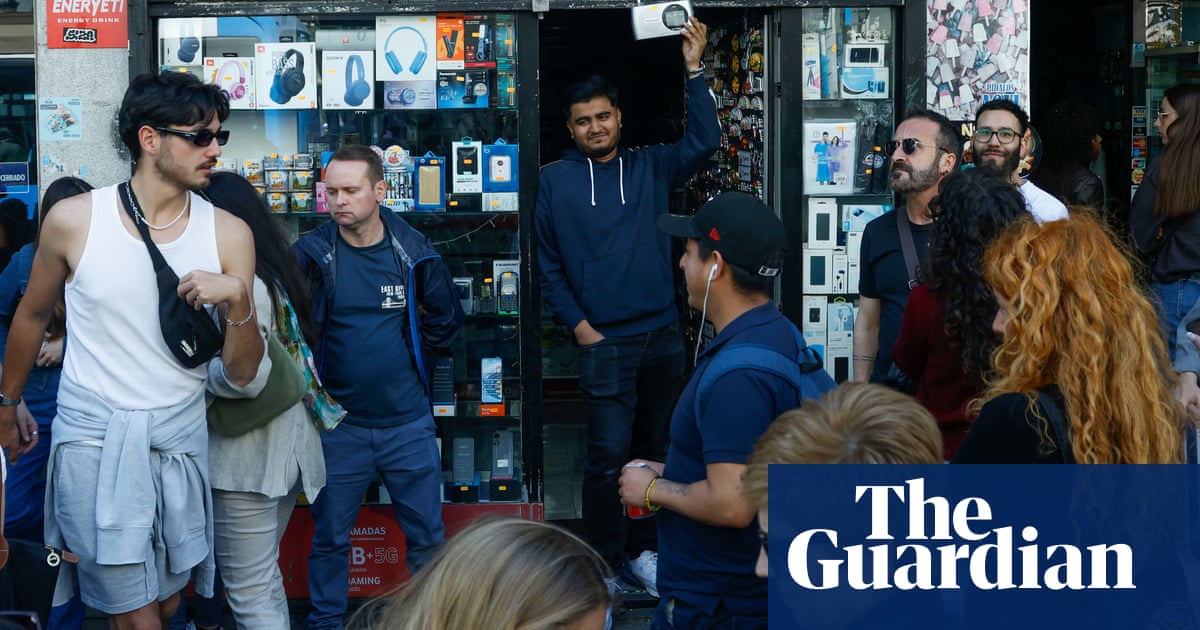Four long hours afterthe power went out across Spain, bringing trains to a halt in Madrid’s metro stations and sending people scurrying for light and taxis, the denizens of the Spanish capital were swinging between pragmatism and polite, almost jocular, panic.
Behind the counter of his neighbourhood bazaar in a quiet corner of the city, a shop owner reeled off a list of the afternoon’s most popular purchases: radios, batteries, torches and candles. As he finished, yet another optimistic customer entered the shop.
“I don’t suppose you’ve got any radios left?” The shop owner shook his head. No radios.
Outside, on the boulevard that runs between two local schools, families were trotting home and trying to plan the next few hours. “We’re worried,” said Reyes Paterna, who was running a quick mental inventory as she took her young daughter home, where her one-year-old baby was waiting.
“Nothing’s working. We’ve got stuff for the baby but nothing else,” she said. “We’ve got a camping stove at home but we’re not sure if there’s any gas left in the cylinder.”
Paterna was also anxious about her mother, who lives on her own in Murcia, 200 miles away. “She could be stuck in the lift for all we know!”
For Paterna and everyone else in Madrid, the priorities were basic provisions and hoping that the patchy mobile phone coverage was restored as soon as possible, so that loved ones could be checked on and minds put at ease after hours of uncertainty.
As metro workers lounged outside a silent station – no trains meant no work – people chatted and joked about how things would be better if they were in theirpueblosin the countryside, where power cuts are more common and most people cook with gas.
“We’re all in shock to be honest,” said one woman, as she guided her children home from school. Where were they headed? “To my mum’s. She’s got gas, so at least there’ll be some hot food for the kids.”
Such measured calm was not universal, however. As offices across the capital emptied and taxi drivers bellowed “cash only!” through their windows, at least one noble individual jumped the queue to get to a cab before a waiting pregnant woman.
With the Spanish prime minister, Pedro Sánchez, holding an emergency meeting of the national security council, and the Madrid regional government calling for the declaration of a national emergency, people decided on their own courses of action.
Sign up toHeadlines Europe
A digest of the morning's main headlines from the Europe edition emailed direct to you every week day
after newsletter promotion
Food and other goods were high on everyone’s list of priorities. Though one local supermarket was shuttered – either for want of working systems, or a lack of Euro-carrying customers in an increasingly cashless society – others were doing a good trade. Just as in the Covid pandemic, some people hadn’t been able to resist the urge to stock up on toilet roll.
Manuel Pastor, 72, had not bought toilet roll, but was pulling a shopping trolley homewards, nonetheless.
“I’ve bought some tins and stuff that will last a while, just in case,” he said. “All we can do now is wait. Hopefully it’ll only last a day or two, otherwise people will start to panic.”
He sighed, pondering the possibility of some kind of cyber-attack and hoping that people would resist the urge to panic. If that happened, he said, “everyone will be fighting over things, even before there are shortages. Remember when the pandemic started? What bloody idiots.”
For most people, however, panic would have to wait. There was dinner to be made, relatives to be checked on, and children to be collected and hugged.
